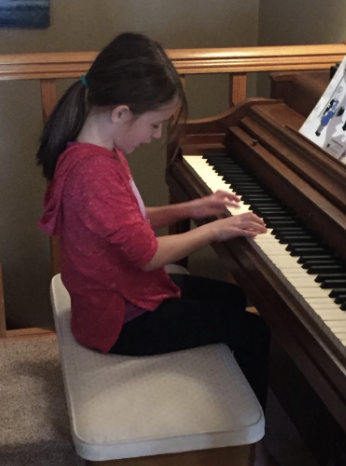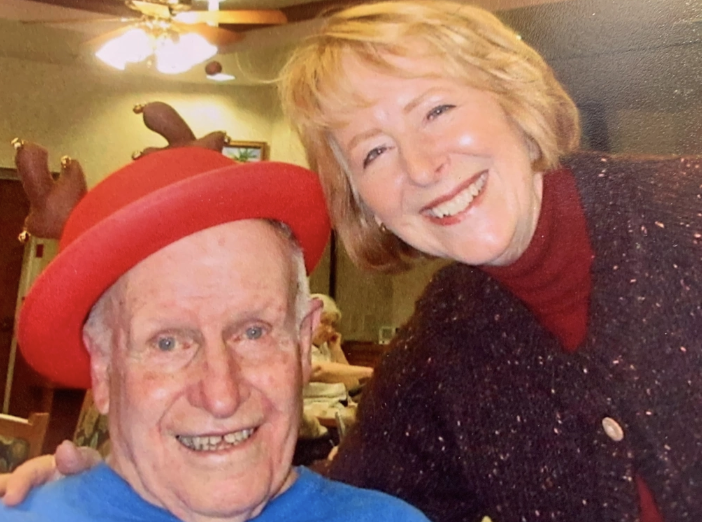The lifeline of music.
Some days it’s Lorie Line’s lovely piano solos. Other days I swing to the sounds of Hotel California by The Eagles. For quieter moments it might be George Winston or John Pachabel’s Canon. I love music — in all its forms and genres. It can fill my heart or bring me to tears. It’s an outlet for my emotions, and now I’ve discovered it can help me live a good, long life.
Photo by Pixabay on Pexels.com
Patricia Izbicki, in her research,”Lessons in Music for the Healthy Aging Brain,” said that although hearing, working memory and other cognitive skills decline with age, studies have shown people who participate in a little music practice may be able to gain or maintain these skills. She cited a study in which the researchers took MRI scans of musicians, both professional and amateurs, and non-musicians, looking for the difference between estimated and chronological age in what’s called BrainAGE. The musicians had lower BrainAGE scores than the non-musicians. Even more interesting, the amateurs scored even lower, suggesting to the researchers that playing for pure enjoyment ended up having more benefits than the stress of making a living playing music.
Well, at least I’ve got that going for me!
I’ve been playing the piano since I was 8 years old. I’ve practiced, performed, accompanied singers and directed a church choir, all of which were intermingled with other life and family activities. But now, with extra time on my hands due to retirement and COVID, I play the piano nearly every day, sometimes for over an hour. What makes it even more special for me is the instrument I’m playing on.
For nearly 30 years, I’ve wished and hoped for this. What a wonderful gift from my husband for my 70th birthday. It’s a stunning instrument, and it doesn’t look its age — 20 years! We purchased it from Mid-America Piano in Manhattan, KS. that specializes in restoring grand pianos. The owner assured me that I had at least 50 years of wonderful playing from this piano. I told him that was perfect, because my goal was to live to 120!!
There is strong evidence to suggest that playing music has cognitive benefits because it’s an exercise session for the brain — a whole brain workout, if you will. Studies have shown that even short-term visual arts and musical training can boost the brain health of older adults. That’s incentive enough for me to continue playing the piano — and learning more with it. I was not blessed with the gift of “playing by ear,” something I marvel at. I need printed music in front of me. But now I’m doing a “whole brain” workout — memorizing songs, trying to add a new one to my list every month.
Another thing that keeps my musical brain alert and young is giving piano lessons to my two young granddaughters. Staying two steps ahead of them takes work!
It’s no surprise that music has such an impact on so many people. After all, music is the universal language, and the list of benefits achieved from it our numerous.
Music can improve our mood. Studies have shown that listening to music can benefit overall well being, help regulate emotions and create happiness and relaxation in everyday life.
Music can reduce stress and anxiety. Listening to relaxing music has been shown to reduce stress and anxiety in healthy people and in people undergoing medical procedures (surgery, dental, colonoscopy).
Music can improve exercise. Studies suggest that music can enhance aerobic exercise, boost mental and physical stimulation and increase overall performance.
Music can have healing properties.
During these times of the pandemic, I think about the residents of nursing homes and the consequences of their being isolated in their rooms, away from family and social interaction. I hope music is helping some of them. What if music could even unlock some forgotten memories and give new life and enthusiasm to their days.
The Music and Memories program was implemented a few years ago with some nursing homes in California. Residents were equipped with digital earphones and an ipod packed with a playlist of songs. But it wasn’t just any playlist — it was quite literally the soundtrack of their lives. Staff, with the help of the residents’ families, compiled songs that brought back vivid and pleasant memories, important events and other milestones that were marked with music. Videos of residents’ reactions as they listened to the music were heart-warming and amazing, to watch the toe tapping, singing along, even dancing by people who, for a long time, not said a word or had a positive reaction of just about anything.
The power of music to help and heal.
About three years ago, one of our choir members suffered a stroke which left him mostly speechless and with very little movement of his arms. Realizing he was no longer able to take care of himself, his family placed him in a nursing home in a neighboring town. The choir didn’t want to forget Mac nor have him forget us, so once a month we paid him a visit. And of course we sang when we were there, which proved to be entertaining both for Mac and the other residents.
Mac loved our visits and group singing
I’ll never forget the light in Mac’s eyes when we came for a visit and while he couldn’t sing along with us, he tried with all his might to do just that, always with a big smile on his face.
No one ever confirmed this, but I suspect those monthly visits and Mac’s participation, kept him from falling into a depression or even further disability. We continued our visits until the pandemic kept us away. Sadly, Mac passed away just a few short months after our visits stopped.
The choir sang for his funeral because he had been a longtime loyal member, with one significant memory. Mac played the harmonica, and on Midnight Mass, in our big, beautiful cathedral-like church, Mac would trapse up to the choir loft to play Silent Night as we began our service.
The harmonica went with him in his casket. This Christmas, the choir will sing Silent Night for Midnight Mass without Mac’s harmonica. But we know he’ll be playing along. He’s already gone upstairs.
Music is moving, memorable and so important for the quality of a long-lived life.






